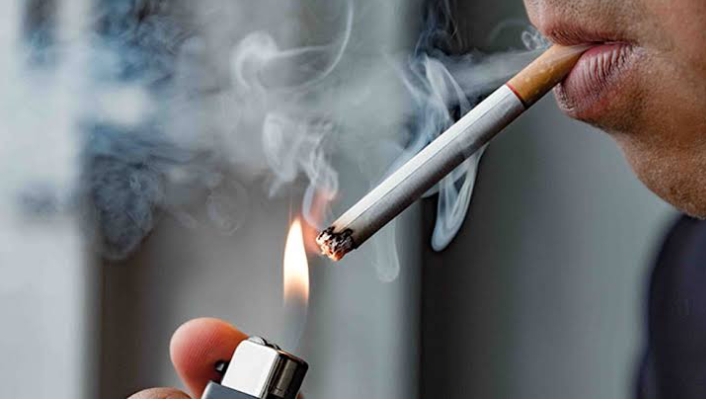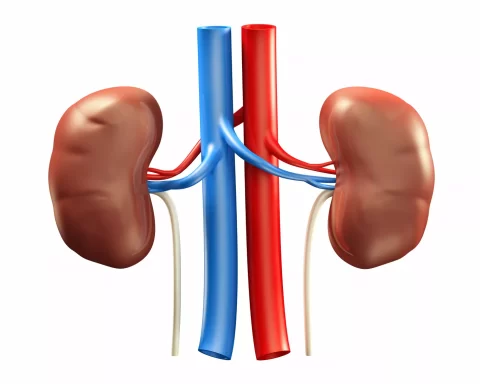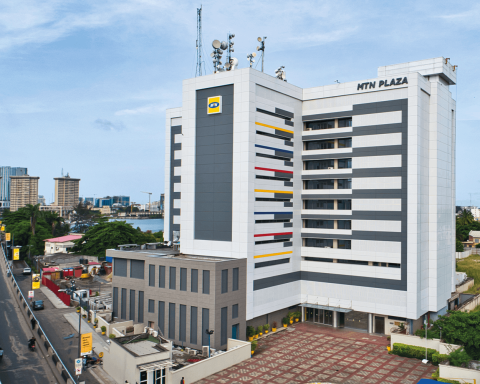One thing that kills democracy is impunity and lawlessness. There is a groundswell of empirical evidence to demonstrate without any shadows of doubt that one of the twin evils tearing Nigeria’s democracy apart and setting Nigeria out as one of the most bestially lawless nations in today’s world are official impunity and corruption.
It is impunity that made a top military general to nearly run yours faithfully out of the highway in Abuja on Thursday just because of the ‘big-man’ virus that afflicts our nation.
Join our WhatsApp ChannelThis particular Army General (one of the military chiefs) with a convoy of over 20 SUVs was on his way to the military headquarters, opposite Agura Hotels, Garki when they almost shoved my car out of the road just because he was too important to ride on the same road and the same time with a ‘bloody civilian’ like Comrade Emmanuel Onwubiko. The motorcycle outrider even pointed a pistol at me for refusing to jump into the bush.
I deliberately agreed to give way for the lawlessly driven convoy of the Army General to proceed because if anything had happened to me after the motorcycle security detail pointed a gun towards me, this government of President Bola Ahmed Tinubu, that has the history of not protecting the citizens, wouldn’t do anything by way of delivering social justice and if I die the Heavens wouldn’t fall because many have been killed extrajudicially and the state sponsored killers in uniforms are walking free and taking salaries.
In Nigeria now, the IGP, the CDS, the heads of security forces and the retired AIG who is the NSA to Tinubu, are simply doing whatever they like: arresting, detaining peaceful protesters, and failing abysmally to take out armed bandits, terrorists and gunmen who are on rampage, killing, maiming and kidnapping citizens for ransom and these officials know next to nothing like accountability since the President has lost control of these men.
READ ALSO: Nigeria’s Curious Next Steps
This official impunity goes on in different top institutions, including commercial hotels, especially those ones whereby government officials and expatriates are frequent visitors. The story you will read is that of impunity and the failure of the Minister of Health to do the needful to protect Nigerians from indiscriminate smokers of cigarettes in public places.
Nigeria’s journey towards becoming a society that prioritises public health has been long and arduous, punctuated by various challenges and milestones. One of the most significant milestones was the enactment of the National Tobacco Control Act (NTCA) in 2015, a legislative framework designed to curb the harmful effects of tobacco use in Nigeria. Among its many provisions, the Act strictly prohibits smoking in public places, a measure intended to protect non-smokers from the dangers of secondhand smoke. Yet, in the heart of Nigeria’s capital, at one of its most prestigious hotels, this law is flagrantly disregarded. The Transcorp Hilton Hotel in Abuja, a beacon of luxury and comfort, has become a haven for those who flout the law, particularly expatriates who smoke in public areas with impunity.
The Transcorp Hilton is no ordinary hotel. It is a landmark establishment in Abuja, frequented by the nation’s elite, expatriates, and dignitaries from around the world. It is a place where business deals are struck, and international conferences are held; a microcosm of global interaction. However, beneath this veneer of sophistication lies a disturbing disregard for Nigeria’s public health laws, especially concerning smoking in public places. This situation raises important questions about the enforcement of laws in Nigeria, particularly when expatriates and other influential guests are involved.
Walking through the elegant halls of the Hilton, one might notice that smoking is prohibited in several areas within the hotel, such as the Bukka Restaurant, the Piano Lounge, and the Pastry Corner. These places, all within the hotel’s interior, are kept smoke-free, ostensibly to protect the health and comfort of guests. However, step outside to the foyer just beyond the lobby, and a different reality emerges. Here, particularly near the hotel exit, where guests wait for their vehicles, the air is thick with cigarette smoke, often exhaled by expatriates from various Asian countries.
This blatant disregard for the NTCA is alarming, especially in such a high-profile establishment. The health risks associated with secondhand smoke are well-documented. Inhaling smoke from a cigarette, even passively, can trigger severe health issues, particularly for those with pre-existing respiratory conditions like asthma. For individuals with severe asthma, exposure to cigarette smoke can be life-threatening. The World Health Organisation (WHO) has long warned of the dangers posed by secondhand smoke, yet in Nigeria, where public health challenges are already daunting, this threat is being ignored in places where one would expect the strictest adherence to health regulations.
One might wonder why Transcorp Hilton, a hotel that prides itself on providing world-class service, allows this flagrant violation of the law. Is it possible that the management is unaware of the NTCA and its provisions? Or is it that they feel above the law, confident that the government will turn a blind eye to such transgressions? The reality is likely more complex. The Hilton management’s apparent tolerance of public smoking, particularly by expatriates, may stem from a misguided sense of hospitality. Perhaps they believe that enforcing the law too strictly might offend their foreign guests. However, this raises another question: why should the health and well-being of Nigerian citizens be compromised to accommodate the unhealthy habits of a few expatriates?
I have personally observed this troubling scenario at the Transcorp Hilton on multiple occasions. I have raised the issue with the hotel’s management, urging them to enforce the NTCA in all areas, including the foyer where guests wait for their cars. Despite assurances that action would be taken, I have seen no significant change. The expatriates continue to smoke with impunity, and the management remains complacent. This inaction is not just disappointing; it is dangerous. By allowing smoking in public areas, Transcorp Hilton is not only violating the law but also endangering the health of its guests and staff.
READ ALSO: WHO Declares Mpox Global Public Health Emergency As Sweden Confirms First Case
This issue is not unique to Transcorp Hilton. Many hotels in Abuja, particularly those that host a significant number of expatriates, exhibit similar behaviour. The Abuja Continental Hotel, another major establishment, has also been reported to turn a blind eye to public smoking. This trend suggests a broader problem within Nigeria’s hospitality industry: a willingness to overlook legal and health standards to accommodate influential guests. This behaviour is not only illegal but also deeply unethical. It sends a message that some people, particularly expatriates, are above the law, while ordinary Nigerians must bear the brunt of the consequences.
The health implications of this disregard for the law are severe. Nigeria already faces significant public health challenges, including a high prevalence of respiratory diseases. The impact of secondhand smoke is particularly concerning. The WHO has stated that there is no safe level of exposure to secondhand smoke, which contains over 7,000 chemicals, including 69 known carcinogens. For individuals with asthma or other respiratory conditions, exposure to these toxins can be devastating. Children, pregnant women, and the elderly are particularly vulnerable, yet they are often the ones most exposed in public places like hotel foyers.
READ ALSO: Beyond Smoking And Drinking: Here Are Other Factors That May Harm Your Kidneys
It is here that the responsibility of the government, particularly the Minister of Health, Prof. Muhammad Ali Pate, comes into sharp focus. Prof. Pate, who has an impressive track record in global health, including his previous roles at the World Bank and Harvard University, must address this issue with the urgency it deserves. Since he was appointed Minister of Health in 2023, Dr. Pate has seemed to be silent on the issue of tobacco control, a silence that is increasingly difficult to justify. One must ask: does the Minister not see the danger posed by the widespread violation of the NTCA in places like Transcorp Hilton? Is he unaware of the health risks associated with secondhand smoke, or is it simply not a priority for his administration?
READ ALSO: Nigeria Can Begin Vaccines Production To Tackle Cancer, Other Diseases – Ali Pate
If Prof. Pate is indeed committed to improving public health in Nigeria, as his credentials suggest, then he must take immediate action. First, the Ministry of Health should launch a comprehensive campaign to raise awareness about the NTCA, particularly among businesses that host expatriates and other influential guests. This campaign should not only educate but also remind these businesses that they are not above the law. Enforcement mechanisms must be strengthened, and penalties for non-compliance must be applied consistently, regardless of who the offenders are.
Second, Prof. Pate must prioritise the enforcement of the NTCA in all public places, including high-profile hotels like Transcorp Hilton. This will require collaboration between the Ministry of Health, law enforcement agencies, and local governments. A task force could be established to conduct regular inspections and ensure that public places adhere to the law. Those found in violation should face swift and severe penalties, including fines and possible closure for repeat offenders.
Third, the government should consider amending the NTCA to close any loopholes that businesses might exploit. For example, the law could be expanded to require more explicit signage in all public places, informing guests of the smoking ban and the penalties for violating it. Additionally, the government could introduce stricter regulations on the sale of cigarettes in hotels and other hospitality establishments, making it more difficult for guests to purchase tobacco products on-site.
Finally, there must be a concerted effort to change the culture of impunity that allows such violations to persist. Nigerian businesses must understand that the health and safety of their guests and staff cannot be compromised, no matter who the offender is. This will require a shift in mindset, one that places public health above profits and hospitality. The Ministry of Health can play a crucial role in driving this change by leading by example and enforcing the NTCA with unwavering commitment.
In conclusion, the situation at Transcorp Hilton Abuja is a microcosm of a broader problem facing Nigeria’s public health system: the failure to enforce laws designed to protect citizens from preventable health risks. The NTCA was a landmark achievement, but its effectiveness depends on consistent enforcement. Allowing expatriates and other influential guests to flout the law not only undermines this progress but also endangers the health of countless Nigerians. It is time for the government, led by Prof. Muhammad Ali Pate, to take decisive action. The health of our nation depends on it.
Emmanuel Onwubiko is head of the Human Rights Writers Association of Nigeria and was National Commissioner of The National Human Rights Commission of Nigeria.













